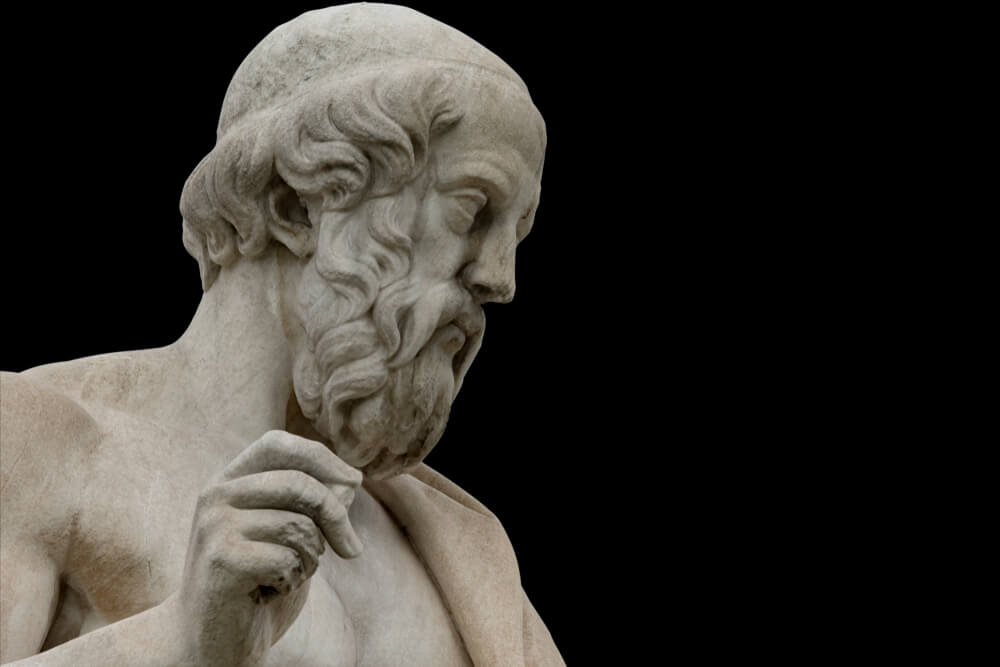There was a time when ancient Greece was synonymous with splendor and wisdom; philosophers like Plato have lived with poets, mathematicians, astronomers and other scholars, although there has never been anyone better than him to express the thoughts of his generation. those who emphasize understanding, individualism and self-know-how.
It is not very bold to regard this philosopher as one of the most reactionary of this time. While it is true that Socrates’ considerable shadow and influence was projected on his achievements, it was not something that once bothered him excessively.
- As a highly respected sage.
- Considering the opinions of others more intelligently was an honor for him.
- Because of your urgent need to write down all your ideas.
- We can now access your writings.
- Tips and lessons with great ease.
Thanks to his discoveries, this Athenian follower of gymnastics ended, together with Aristotle and Socrates, one of the great figures of Western philosophy, a philosophy that today concentrates the foundations of our education, our politics and our contemporary thinking.
Plato uses an allegory, “The Myth of the Cave,” to explain the physical world’s relationship with the world of ideas. The group of people trapped inside the cave think it’s their only reality and, when they can see what’s outside, the sun damages their eyes. They want to go back to the dark because it’s more comfortable and that’s what they’re used to, but when they come back, their perception of the world has changed.
With this fable, the philosopher forces us to wonder why we are in prison, are we afraid of what we might discover if we free ourselves from our prisons?The shadows we observe from inside the cave simulate a deceptive reality and distract us from real reality: what happens outside.
One of Plato’s best phrases focuses on his belief that the world should be ruled by philosophers; according to him, they are the wisest and most capable of governing; because he belonged to an aristocratic family, he was deeply undemocratic, though he was never afraid. to express their discontent with government action.
He admired many other philosophers, such as Socrates, with whom he thought he could learn a lot, and through him discovered an absolutist conception of universal truth, far beyond the ideas he might have as an individual. people who can teach us something, even if we don’t agree with them.
Given his admiration for Socrates, of whom he was a disciple, he was deeply affected by his death sentence for spreading supposed pagan theories, and considered it unfair that it should be carried out to propose alternatives to those established, which were not even so.
From his mentor he learned that people are not evil by nature, but out of ignorance, the human being himself owns his actions and is responsible for his decisions, using God as a shield to perform unjust actions is an aberration.
This statement became one of Plato’s best phrases. No human cause deserves our anguish and stress. If we think about it, most of the time we worry about trivial things that have an easy solution.
In a situation where anxiety is really justified, it must be controlled, we cannot allow this to affect our health or make us even more miserable.
This fifth council is currently a song of understanding and kindness, Plato’s maxim was to establish a just regime that would allow us to live in peace, unfortunately it has failed, but it is never too late to make our contribution.
“Do it right, don’t look who. ” -Ricardo Palma-
Helping others benefits not only them, but also us, this makes us feel useful and compassionate towards others, generating a very satisfying feeling.
Plato went ahead of his time. Despite several criticisms for their antagonistic positions, their teachings remain in place today, our problems are very similar and perhaps if we put your advice into practice, we learn to see life from a different perspective.

